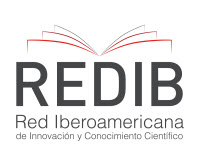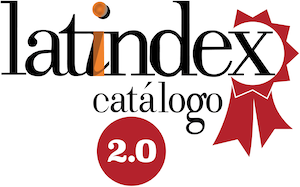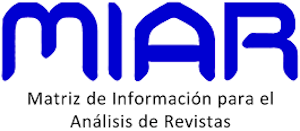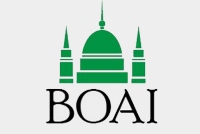Management of edible oil residues from food establishments. Ibarra, Ecuador
DOI:
https://doi.org/10.32645/13906925.987Keywords:
used oil, foods, Ecuador, sustainable management, residuesAbstract
Used vegetable oil is a biodegradable residue originated from the food frying process and food establishments represent one of its main producers. In Imbabura province, Ibarra city has more than a thousand of these restaurants, but the volume of oil generated and the management given is unknown. The aim of the study was to diagnose the management of edible oil residues from food establishments in Ibarra, as input to promote sustainable management of the resource. A survey was applied to three types of food establishments: franchises, Yahuarcocha restaurants and food outlets registered in the municipality's list of economic activities. Food establishments in Ibarra generate, on average, between 10.28 and 24.23 liters of used oil per week. The franchises and stores in the Yahuarcocha sector deliver the oils to managers, but SgB don´t know if they are qualified and the destination they give to the waste. 42% of the SbC establishments dispose the oil in the urban garbage containers, 36% deliver it to a manager and 7% reuse it until it runs out. It is recommended to implement a sustainable management program that considers the training of establishment personnel and integral waste management to reduce environmental contamination and generate sources of employment in the canton.
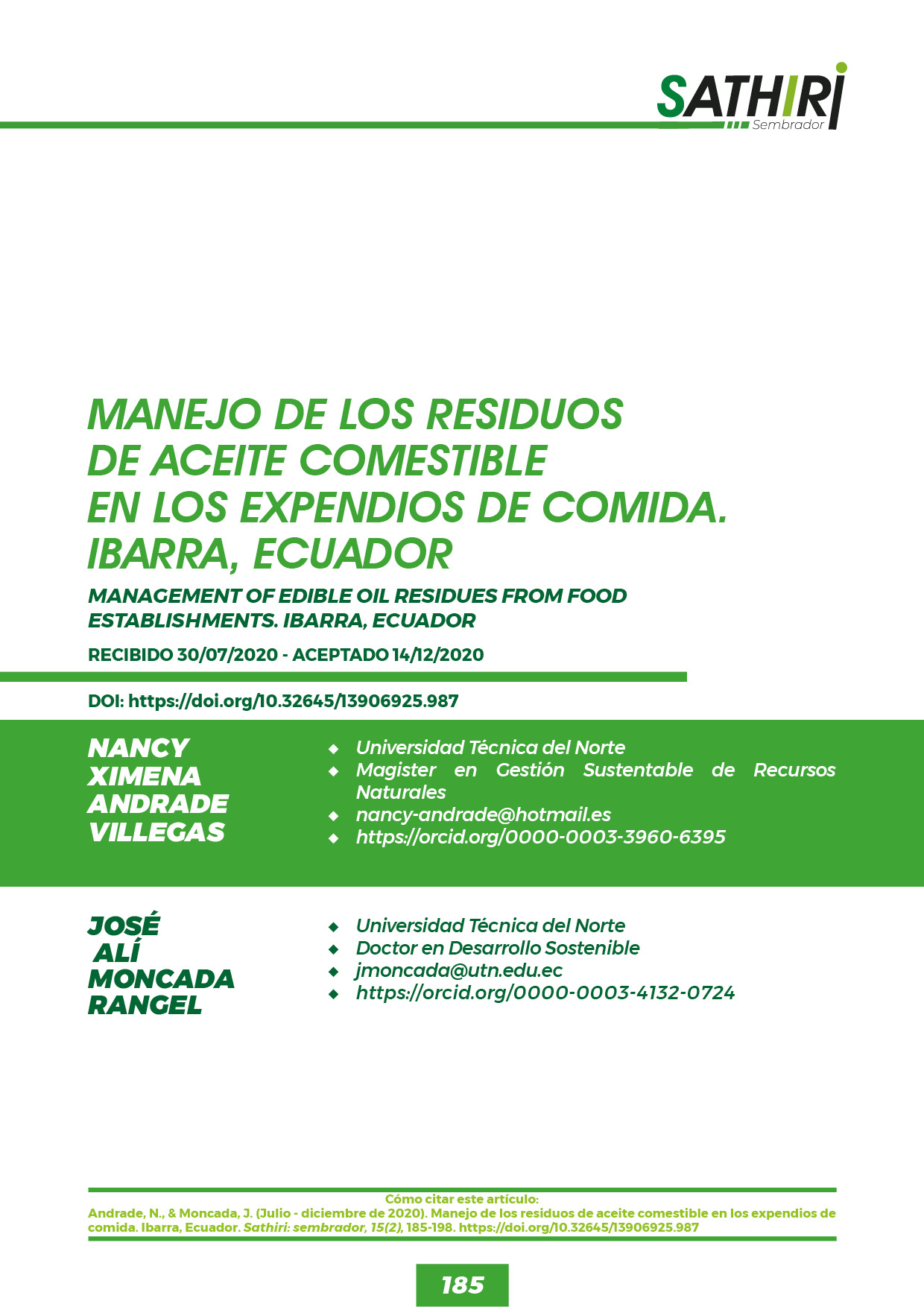
Downloads
Published
Issue
Section
License
Copyright (c) 2020 NANCY XIMENA ANDRADE VILLEGAS, JOSÉ ALÍ MONCADA RANGEL

This work is licensed under a Creative Commons Attribution-NonCommercial-NoDerivatives 4.0 International License.
El autor mantiene los derechos morales e intelectuales de su obra, autorizando a la editorial de la revista Sathiri la difusión y divulgación de su contenido con fines estrictamente académicos y de investigación, sin fines de lucro. Así mismo, se autoriza que la obra sea descargada y compartida con otras personas, siempre y cuando no sea alterada y se reconozca su autoria.






